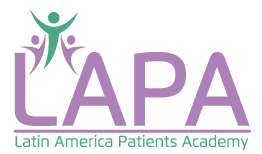
In 2018, LAPA trained 46 patient organization leaders from 14 Latin American countries via face-to-face sessions in Miami, FL, Lima, Peru, and Sao Paulo, Brazil. These initiatives began as a platform supported by FIFARMA and modeled on the success of EUPATI in Europe.
Priority health policy topics for training in 2018 and 2019 included health economics and technology evaluation, medicine regulations, patient access barriers and health care innovation.

In 2019, LAPA formalized operations as an independent 501c3 organization. LAPA trained patient organization leaders in Argentina, Colombia, and Chile. Academic programs were designed specifically for each country and adapted to the needs of local patient advocates after multi-stakeholder consultation and priority mapping.
The current number of LAPA program graduates in the region is 98.
Key government health officials welcomed and participated in most of LAPA's training sessions in 2019. As a result, several discussions are ongoing to determine future collaborative initiatives between local patient groups and health decision makers.

LAPA will work with the same model of program sustainability in 2020 to provide grants and other types of support to the most innovative projects in order to continue to help its trainees and graduates build capacity in public health policy and advocacy. The goal is that LAPA trainees and graduates work closely with all health system stakeholders to generate more active decision-making roles and opportunities for patient advocates. This will improve health system development and sustainability in the long-run.
LAPA-trained and accredited graduates currently number 98 and cover most countries of Latin America.



